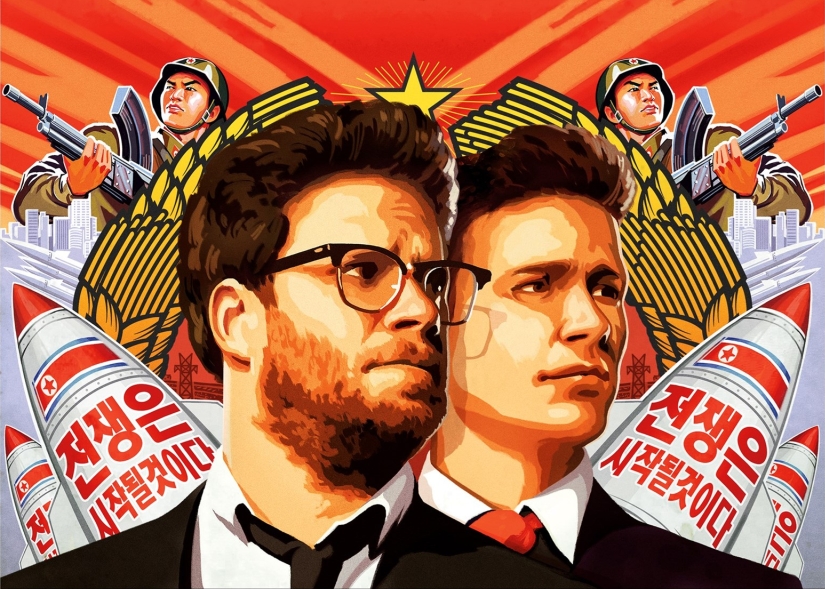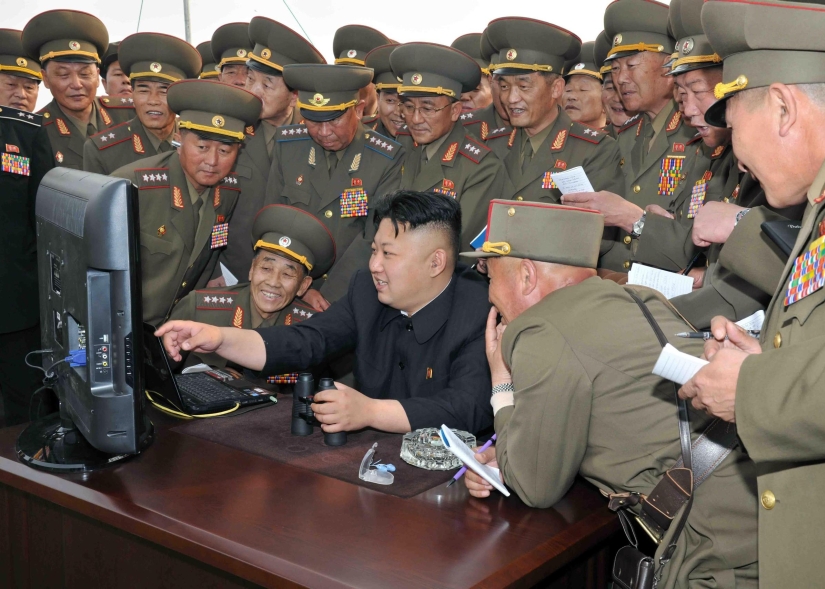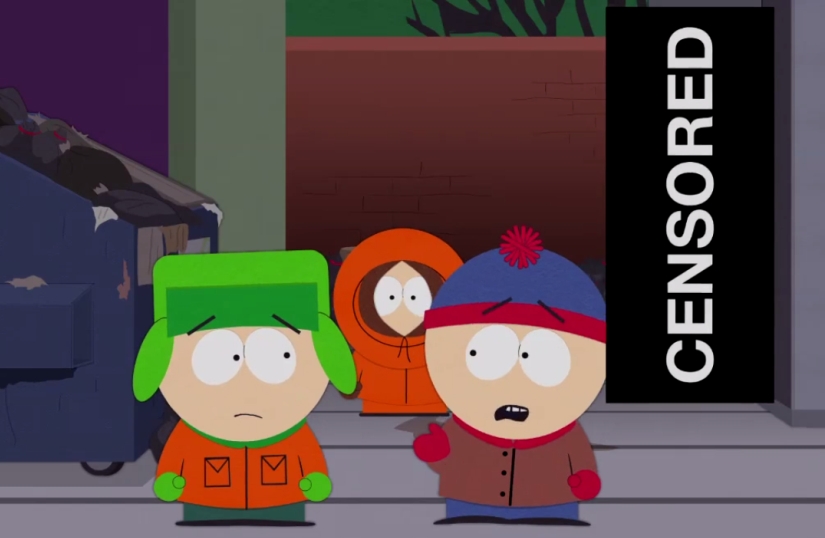In an alternate universe, The Interview was released on Christmas to so-so reviews and modest business; it was beaten on opening weekend by Into the Woods. After four days of post-release thinkpieces and three weeks of diminishing box office returns, The Interview was forgotten.
But we live in a strange world and interesting times.
The Interview was a disposable dude-bro movie that would have had as much cultural impact as a fart in an empty elevator. But because of the hacks linked to North Korea and threats of 9/11-style violence against movie theaters, Sony canceled the movie’s release, which includes DVD/Blu-ray and VOD. The Interview is now much more. It’s an emblem of Kim Jong-Un’s bizarre victory, and a freak American symbol for freedom of expression and corporate cowardice. But more than that, The Interview has also offered us a frightening glimpse into the potential power of cyberterrorism.
Movies have lampooned actual and fictional world leaders before, like Kim Jong-Il in Trey Parker and Matt Stone’s Team America: World Police, Charlie Chaplin’s obvious Hitler analog in The Great Dictator, and the Gaddafi-like tyrant played by Sacha Baron Cohen in The Dictator. The Zucker-Abrahams-Zucker comedy team opened The Naked Gun with Frank Drebin beating up Idi Amin and Ayatollah Khomeini, among others; Abrahams would go on to target Saddam Hussein in the two Hot Shots! films—say what you will about Hot Shots! Part Deux, but Saddam is the highlight of that movie.
People have also attempted to use their power to block the release of movies. Most notably, William Randolph Hearst tried to bury Citizen Kane when he learned that he was a primary influence for the character Charles Foster Kane. Hearst refused to run ads for the film in his newspapers, used his publications to question Welles’ patriotism, and exploited connections in Hollywood to block theaters from showing Citizen Kane. Studio execs sympathetic to Hearst and led by MGM’s Louis B. Mayer even offered to buy all prints and negatives of Citizen Kane in order to burn them.
Which is what makes this situation more absurd. The Interview—a movie that is likely mediocre-at-best if these reviews compiled at Criticwire are any indication—is now a symbol, and it’s been elevated (for now) to share an odd cultural conversation space alongside Citizen Kane and The Great Dictator. There are thinkpieces all over the internet (like this one) about the movie as a moment signifying something important rather than a mere vehicle for Seth Rogen and James Franco to make dick jokes. On IMDB, The Interview has a 9.9/10 as a purely symbolic gesture, one that makes it a better-rated movie than Citizen Kane and The Great Dictator. As Alec Kubas-Meyer joked over at Flixist, “Couldn’t the terrorists have chosen a more meaningful film?”
For the first time, a foreign power has dictated what Americans can watch on their own home soil, and simply because Kim Jong-Un finds something offensive. (Let’s temporarily shelve the conversation about good taste, bad taste, propriety, and their relation to comedy for another day.) And to think that the cyberattack was ordered by North Korea of all places. Reports last night suggest that the actual hackers, the “Guardians of Peace,” are based in countries around the globe, though likely working with Bureau 121, North Korea’s government-sponsored cyber warfare unit. Whatever the arrangement, North Korea and the hackers are preying on raw American fear, and succeeding.
There’s the threat of a terrorist attack on movie theaters. Nevermind that these threats aren’t credible, and nevermind that these threats are unfeasible. Picture not a full-scale invasion like the remake of Red Dawn, but rather 9/11, and the Boston Marathon bombing, and the theater in Aurora, Colorado where James Eagan Holmes opened fire on the audience during The Dark Knight Rises; and tied up in the last example are Newtown, and Virginia Tech, and Elliot Rodger, and Fort Hood, and Columbine, and other mass shootings.
Far more important than the gossip of the leaked Sony emails is a genuine worry that everything is monitored and nothing is safe. This feeling is bolstered by the celebrity phone hacks, the Target credit card breach, and the revelations of Edward Snowden. Thousands of Sony employees have had their social security numbers, medical information, correspondence, and other personal info released. Who’s to say anyone’s safe, in person or online?
(This may also reveal Sony’s own ineptitude. Perhaps the company learned nothing from the 2011 PlayStation Network hack.)
Ty Burr at The Boston Globe worried about the precedent that these events have set. He wrote, “Sony and the major exhibition chains have opened the door for any zealot or teenage hacker with mad skills to make all the threats and mayhem they want. This will not be the last such event.” Already, the fear that prompted the cancellation of The Interview has claimed other victims. New Regency was adapting Guy Delisle’s graphic novel Pyongyang into a film directed by Gore Verbinski and starring Steve Carrell. The film was canceled just the other day.
The Alamo Drafthouse and a number of other theaters planned to screen Team America in lieu of The Interview—a symbolic middle finger to North Korea accompanied by a hearty “Fuck yeah!” Paramount, the distributor of Team America, promptly banned the screenings from happening. Not only is a foreign power dictating what Americans can see on their home soil, the fear of reprisal by that foreign power is also dictating the kinds of films and symbolic gestures that Americans think they can make.
We should have the option to laugh about a tense and absurd situation like this because laughter is a form of release, and maybe a helpful one—like George Saunders wrote, humor is often “what happens when we’re told the truth quicker and more directly than we’re used to”—but we’ve been rendered humorless from abroad. This sort of reminds me of that “Imaginationland” three-parter on South Park where terrorists attack our imagination. Certainly people’s imaginations are being turned against them to fear the worst, and in a sense the Guardians of Peace have also exploited America’s failures of imagination with regard to cyberterrorism. The end result, at least immediately, is panic about our vulnerability and an uncertainty about our ability to act and how to act.
There’s another South Park multi-parter to consider: “200” and “201.” Parker and Stone caught flack for daring to depict Muhammad on screen. A small radical group called Revolution Muslim threatened Parker and Stone prior to the airing of “201.” Revolution Muslim stated that the South Park creators might face violent retribution for their work, possibly murder like Dutch filmmaker Theo van Gogh. (Van Gogh was killed by a Muslim extremist because of Submission, a short film about violence against women in the Islamic world. Van Gogh’s last completed film was 06/05, a fictional retelling of the assassination of Pim Fortuyn, a Dutch politician.)
Panic was high at the time, security was beefed up around Comedy Central offices, but they wound up airing “201,” albeit heavily censored when broadcast. You can find the full script of “201” online as well an uncensored version of the episode. The moral the boys learn goes like this:
Kyle: You see, I learned something today. Throughout this whole ordeal, we’ve all wanted to show things that we weren’t allowed to show. But it wasn’t because of some magic goo. It was because of the magical power of threatening people with violence. That’s obviously the only true power. If there’s anything we’ve all learned, it’s that terrorizing people works.
Jesus: That’s right. Don’t you see, gingers? If you don’t want to be made fun of anymore, all you need are guns and bombs to get people to stop.
Santa: That’s right, friends. All you need to do is instill fear and be willing to hurt people and you can get whatever you want. The only true power is violence.
It’s funny because it’s true.




